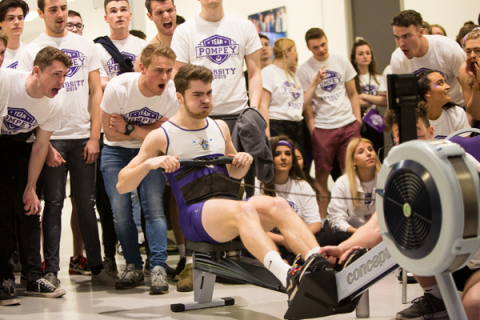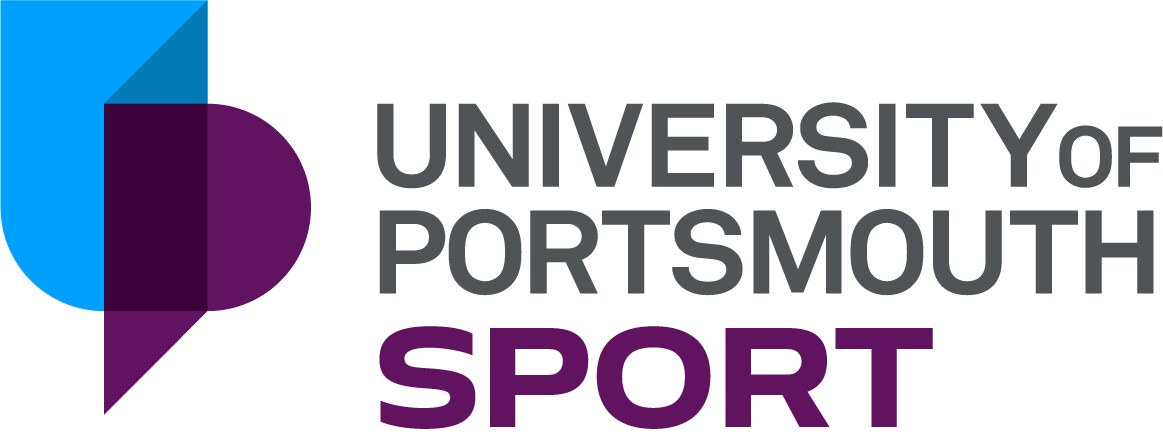

Read Luke's story about how his involvement with UOP Rowing has helped his mental health
We are launching our Sporting Minds mental health awareness month with stories from Team UOP member's. These honest and frank stories are an example of how sport and physical activity can play a part in improving mental health. We want to raise awareness for these stories and of the issues they look to challenge. These personal stories are powerful and should start up conversations between you and your friends, family and team-mates. We have also supplied a number of resources below if you are affected by this story.
Luke is UOP Rowing's Club Captain and is studying Sport and Exercise Psychology, this is his story.
Many of us have always viewed sport as a method of maintaining or improving our physical fitness. A vital aspect that is sometimes neglected, and forgotten about subconsciously is the impact on our mental well-being. Exercise itself causes the release of endorphins in the brain. These endorphins interact with receptors to decrease our perception of pain and in the subject of exercise trigger a positive feeling throughout the body. I have enjoyed playing a variety of sports throughout my life and have now, especially at university, begun to understand how vital sport and exercise is to my mental health.
Upon arriving at university, I experimented playing a variety of sports, having trialled for Cricket, football, badminton, and rowing. I had never rowed before university; however, university sport provides a platform to experiment and trial any sport you want. At 6ft 5 I was recommended to try rowing and was sceptical at first, but I quickly fell in love with it. Throughout my first year, I struggled with being away from home for the first time, trying to maintain a long-distance relationship and receiving below-par grades. As a result, my mental health declined rapidly throughout the year. The one thing that kept me going, however, was sport. Training 4 times a week at rowing, seemed daunting at first but I loved pushing my body to the absolute limit and driving past exhaustion. I loved that rowing is a mental battle more than physical. You are battling yourself throughout, your body screaming in pain, telling you to stop but you keep pushing through that barrier. That feeling after coming off the rowing machine after an intense lung-bursting piece was almost addictive.
That is exactly what rowing became. It was addictive. Escaping my own thoughts and self-deprecation was crucial for my mental health. Being out on the water at 6 am, surveying the beauty and tranquillity of the sea and the environment was mentally healing. I loved the hardworking team nature of the sport. Being in a team and pushing each other to the limits was so motivating. I formed so many friendships that I will cherish for the rest of my life. Cricket as well I loved because of how polar opposite it is as a sport. I loved the technical aspects and the psychology behind the game. The adrenaline you get from those one-on-one battles and outwitting someone makes it so unique. I am so lucky to have formed friendships in both societies and remain part of both clubs and have become Club Captain of rowing.
Later in my first year, my mental health took a turn for the worst. At the end of my long-distance relationship, I hit an all-time low. My thoughts turned towards suicide and ways I could end my prolonged suffering. I felt numb and as if I had no place in this world, that I had become a failure. I went on longer and longer walks at night, ruminating and coming to no other conclusion other than to say goodbye to the world I once loved. Something, however, was keeping me here, I summoned all the courage I could muster, and I took myself to what I thought would be one last rowing training. I went feeling numb and left feeling hopeful. Walking into that session and seeing the smile on everyone’s face. There was a real family environment in the sport. Just interacting with my teammates and bouncing off them was my distraction from my own world. It gave me the perspective that I lacked at the time. This story will sound overdramatic to some and story-like, but I am not afraid to say for that reason rowing saved my life. The buzz I got from training and the social interactions with my mates kept me alive and feeling hope. I was forever excited for rowing training from that moment on and is the reason why I am so passionate about sports. Sports saved my life and has driven my motivation to another level. From that training session, I had to build myself up from the bottom again and discover who I was. Sport and exercise became my way of looking after my mental health, giving your mind a chance to heal and process whatever it needs to process.
I am not saying you must join a sports team. Doing the smallest bit of exercise a day, especially with the current situation we are in, is vital. Getting that daily release of endorphins is enough to uplift your day. Going on a walk, getting some fresh air and some perspective back is so important. I often lose perspective especially with no sport to do at the moment, so going on these walks and runs to be with your thoughts is so mentally healing and rewarding in the long run. And when sports clubs and gyms reopen, we will be so much more grateful and enjoy them that bit more. So, for the time being, go on walks, do some daily exercise and maintain that perspective, sport and exercise are more powerful for the mind than you think.
Throughout the month we'll be sharing some of Luke's work - sharing his tips, advice and life experiences that can help us gain a better understanding of ourselves.

